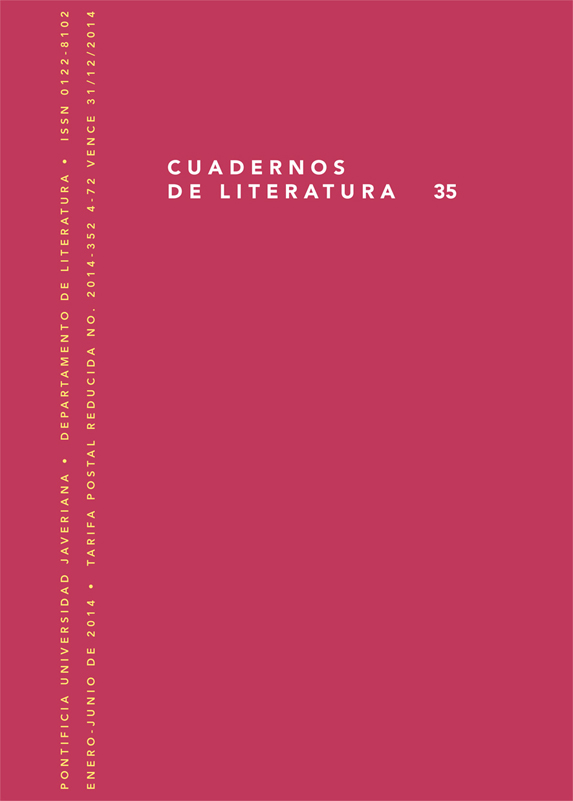Abstract
Este trabajo detalla la conexión y distinción entre las obras de W.H. Hudson y José María Arguedas, usando la teoría rizomática de Deleuze y Guattari para evaluar el poder de un paisaje, evocar y crear memorias, y al mismo tiempo inculcar un “ser-sentido”. Además, explora el afecto cognitivo chamánico, presente en la obra de Arguedas. En cambio, Hudson se centra en la proyección de uno mismo al nivel del individuo. Arguedas muestra un enfoque dual sobre lo cultural y lo individual. Este ensayo está basado en la idea de que hay varios estados de conciencia que influyen en nuestra interpretación de la realidad y nuestra capacidad de sumergir dichos estados en uno de “ser-siendo”, provocado por el entorno natural descrito por Arguedas y Hudson.
Cuadernos de Literatura is registered under a Creative Commons Attribution 4.0 International Public License. Thus, this work may be reproduced, distributed, and publicly shared in digital format, as long as the names of the authors and Pontificia Universidad Javeriana are acknowledged. Others are allowed to quote, adapt, transform, auto-archive, republish, and create based on this material, for any purpose (even commercial ones), provided the authorship is duly acknowledged, a link to the original work is provided, and it is specified if changes have been made. Pontificia Universidad Javeriana does not hold the rights of published works and the authors are solely responsible for the contents of their works; they keep the moral, intellectual, privacy, and publicity rights.
Approving the intervention of the work (review, copy-editing, translation, layout) and the following outreach, are granted through an use license and not through an assignment of rights. This means the journal and Pontificia Universidad Javeriana cannot be held responsible for any ethical malpractice by the authors. As a consequence of the protection granted by the use license, the journal is not required to publish recantations or modify information already published, unless the errata stems from the editorial management process. Publishing contents in this journal does not generate royalties for contributors.


